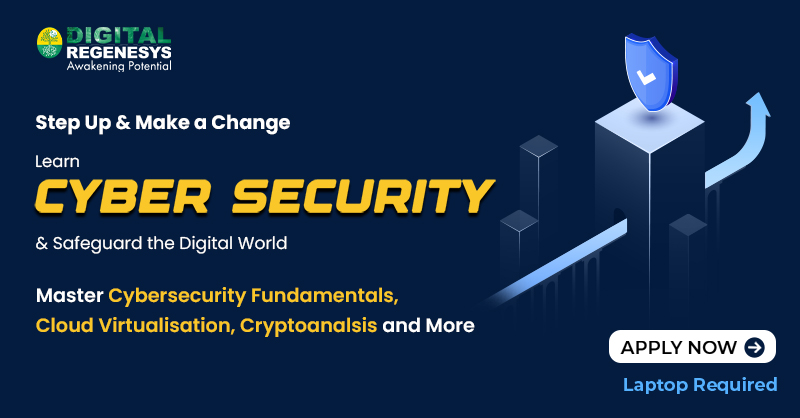Can You Get Into Cybersecurity Without an IT Degree? Eligibility Insights for South Africans

Cybersecurity is no longer just an IT function; it’s at the core of how businesses, governments, and even small organisations protect themselves in a digital world. In South Africa, the increasing number of cyberattacks has created a significant demand for professionals who can protect sensitive data and respond to threats effectively.
For many aspiring professionals, a big question often arises: “Do I need an IT degree to get started?” The answer is reassuring – not necessarily.
While having an IT degree can open certain doors, it’s no longer the only route to building a meaningful and rewarding career in cybersecurity.
In this article, we’ll explore practical eligibility insights for South Africans, covering the essential skills, certifications, and real-world steps that can help you break into cybersecurity, even if your background isn’t in IT.
Understanding the Evolving Cybersecurity Landscape
Cyber threats are becoming increasingly complex, and South African businesses require experts who can effectively protect their systems and data. With cloud computing, digital banking, and remote work becoming the norm, there’s a growing demand for professionals who can secure these environments.
This demand has created a more open pathway for individuals without an IT background. Employers are now prioritising demonstrable skills and certifications, offering opportunities for motivated candidates from diverse fields.
Here’s why this shift benefits non-IT aspirants:
- South Africa’s cybersecurity sector is expanding across various industries, including finance and healthcare.
- Employers seek proven skills over traditional degrees.
- Diverse backgrounds bring fresh perspectives to security challenges.
- The increasing number of cyber threats means an ongoing demand for talent.
Explore details on Is Cyber Security a Good Career?

Eligibility Without an IT Degree
Breaking into cybersecurity without an IT degree is not only possible but increasingly common. Many hiring managers now value practical knowledge and problem-solving skills over formal qualifications. If you’re willing to learn and show commitment, you can carve out a successful career.
Professionals from business, law, and creative fields have entered the cybersecurity field by focusing on technical fundamentals and obtaining recognised certifications. These alternative pathways allow you to demonstrate expertise and dedication to the profession.
Key ways to become eligible include:
- Earning beginner-friendly certifications.
- Building practical skills in network security and incident response.
- Highlighting transferable skills such as analysis and critical thinking.
- Demonstrating continuous learning through projects and training.
Essential Skills to Build First
To succeed in cybersecurity, you need a mix of technical know-how and soft skills. While degrees may provide theoretical grounding, employers often seek candidates who can apply these skills to real-world challenges.
Technical foundations, like understanding how networks work, recognising threats, and implementing controls, are crucial. However, soft skills such as communication and adaptability ensure that you can effectively explain complex risks and work collaboratively within teams.
Start building your foundation by focusing on:
- Core areas like networks, encryption, and access controls.
- Problem-solving skills for handling live incidents.
- Effective communication skills to translate complex risks into understandable terms for non-technical audiences.
- Adaptability to keep pace with rapidly evolving cyber threats.
Know more about Who Should Consider a Cybersecurity Course for Personal Knowledge.
Certifications That Boost Credibility
One of the fastest ways to establish credibility in cybersecurity, especially without an IT degree, is by completing a recognised certification. The Digital Regenesys Cybersecurity Certificate Course is specifically designed for South Africans seeking to enter this field.
It provides practical, hands-on training in areas such as threat detection, network security, risk management, and incident response. By the end of the course, learners not only understand cybersecurity concepts but can also apply them to real-world scenarios, giving them the confidence and skills that employers actively seek.
Why choose the Digital Regenesys Cybersecurity Certificate Course:
- Hands-on, practical training for real-world cybersecurity challenges
- South Africa–focused curriculum aligned with industry needs
- Builds both technical skills and problem-solving abilities
- Prepares learners for entry-level roles and career growth in cybersecurity
Gaining Hands-On Experience
Practical experience is a critical differentiator for cybersecurity job seekers. While learning theory is essential, applying it in real scenarios prepares you for the workplace.
Aspiring professionals can benefit from virtual labs, internships, and real-world projects. Many South African organisations also offer volunteer opportunities to help nonprofits and small businesses improve their cybersecurity posture, providing valuable exposure.
Ways to gain practical experience include:
- Joining Capture the Flag (CTF) competitions to test your skills.
- Contributing to open-source or nonprofit security projects.
- Using online labs and simulated attack environments.
- Creating personal projects, such as building secure home networks.
Career Pathways in Cybersecurity
Cybersecurity offers a wide range of roles, and as you build your skills, you can choose a path that suits your interests. Career changers often start with entry-level roles before advancing into specialised or leadership positions.
South Africa’s demand for professionals in both technical and strategic roles means that opportunities abound for those willing to keep learning and growing.
Typical roles you can aim for include:
- Security Analyst – Monitoring and responding to threats.
- Penetration Tester – Simulating attacks to uncover vulnerabilities.
- Cloud Security Specialist – Protecting cloud-based systems and data.
- Cybersecurity Consultant – Advising organisations on best practices.
- Security Manager – Leading teams and shaping security policies.
Get insights on How Do I Start A Career In Cyber Security?
Overcoming Common Challenges
Transitioning into cybersecurity without an IT degree isn’t without challenges. Some candidates face self-doubt, while others may feel intimidated by technical jargon or emerging tools.
By focusing on skill development and gaining certifications, you can overcome these obstacles. Support from mentors, peers, and online communities also plays a significant role in keeping you motivated.
Practical steps to tackle challenges include:
- Building a consistent study routine for skills and certifications
- Seeking mentors or joining cybersecurity groups and forums
- Focusing on continuous improvement rather than perfection
- Staying curious and adaptable as technologies evolve

Conclusion
A lack of an IT degree is no longer a barrier to a thriving cybersecurity career in South Africa. By focusing on building relevant skills, earning certifications, and gaining hands-on experience, you can confidently enter this growing field.
The Digital Regenesys Cybersecurity Certificate Course is an excellent starting point, providing practical, industry-relevant knowledge tailored for South African learners.
Passion, persistence, and a commitment to continuous learning can lead to rewarding roles in cybersecurity, regardless of your academic background.
Visit Digital Regenesys to explore the course and start your journey toward a rewarding cybersecurity career.
Last Updated: 13 October 2025